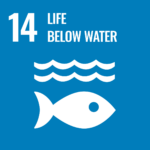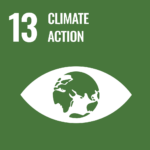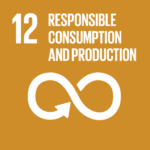Degree in Ocean Studies
Coming Soon

Presentation
The ocean is at the heart of the response to humanity’s great challenges. In the sea we find solutions and opportunities for problems that we must solve together within a framework of sustainability: from climate change to the need for food, from clean energy to the conservation of biodiversity. With the increased awareness of these issues, knowledge becomes central to solving problems and creating opportunities.
The Ocean Studies degree was born to respond to these challenges, through an innovative interdisciplinary approach that creates a common language shared by an oceanic generation.
This interdisciplinary degree is the result of a partnership between NOVA University Lisbon (bringing together 5 organic units – NOVA School of Law, IMS, SBE, FCSH and FCT), the University of the Algarve and the University of Évora, and also includes the involvement of the Hydrographic Institute of the Portuguese Navy.
This is an innovative venture, entirely in English, because the subject is global and the degree seeks to provide answers to problems not only in Portugal, but throughout the world.
One of the added values of this course is in finding a generation who shares a common language capable of developing public policies in the area of the sea and a true blue economy, and a sustainable ocean economy, in line with the United Nations’ Sustainable Development Goals, in particular SDGs 14, 13 and 12.
The Ocean Studies degree contributes to blue literacy, creating an ecosystem of growth and shared knowledge, capable of establishing a platform for dialogue with more specialized knowledge in the multiple scientific areas dedicated to the sea.



A degree with several dimensions
The breadth of subjects and a strong hands-on component are the hallmarks of this degree.
The Ocean Studies degree touches on several dimensions that are less reflected in the existing training offer, at national or international level, since it intersects areas of knowledge such as science and technology, data analysis, the principles of economics and management, the legal and regulatory framework, and the social sciences.
The aim is for students to experience reality through field trips at sea, starting in the Algarve, at the beginning of the 1st year.
By understanding the different uses and activities of the blue economy and their ecological impacts, students will be able to decode the challenges inherent in the sustainable use of the ocean and contribute to making an impact in this area.
At the end of the 1st year, using the city of Sines as a case study, students will learn, reflect, discuss and present solutions to some of these challenges, through their ability to observe, listen, select information (technical, scientific, legal) and interpret the problems associated with the different uses and activities related to the ocean within the framework of a coastal city (industry, tourism, culture, fishing, aquaculture and marine conservation).
We recognise the unique value of theoretical knowledge, but also its close connection to the practical side, which will consolidate a richer and more robust learning experience.
We want to send agents of change into the world with the capacity to solve environmental problems and develop a truly sustainable ocean economy.
Head teachers

Assunção Cristas
NOVA School of Law

Antonieta Cunha Sá
Nova SBE

José Carlos Ribeiro Ferreira
NOVA FCT

João Paulo Costa
NOVA FCSH

Alice Newton
Universidade do Algarve

Teresa Cruz
Universidade de Évora

Roberto Henriques
NOVA IMS
Employability
This degree is aimed at students who are passionate about the sea and who want to develop their knowledge in order to act on it. They are curious about the various areas of knowledge applied to the ocean and will be able to generate interdisciplinary dialogue.
At NOVA School of Law we aim to raise awareness of the centrality of the ocean to life on the planet, its fragility and the need for its protection and recovery, adopting a commitment to sustainability.
We therefore want students to develop analytical and critical skills to prepare themselves as professionals in order to identify, take advantage of and create opportunities linked to the sea, namely by supporting companies or creating new companies in the blue economy.
Ocean Studies graduates are qualified to work in entities dedicated to the ocean, at national, European and global level, developing scientific research or solving concrete problems such as marine pollution control, or creating opportunities to support the development of any area of the blue economy, such as the bioeconomy and blue biotechnology, marine renewable energies or financing the blue economy.
This degree is extremely relevant for those who want to manage the planning of marine and coastal areas or work in areas where operational and observational oceanography is explored.
Ocean experts graduating from this programme will also have the opportunity to work on the rehabilitation and restoration of coastal and marine environments, promoting biodiversity and carbon sequestration.
Breaking new paths
This degree will enable students to continue their studies in the 2nd Cycle in the Master’s Degree in Law and Economics of the Sea – Ocean Governance, a joint master’s degree offered by NOVA School of Law and NOVA SBE, as well as in the Master’s in Marine Living Resources: Science, Technology and Society and the Master’s in Maritime Logistics, both offered by NOVA FCT.
With a view to deepening student experience, curricular strengthening plans have been designed that include curricular internships, international internships and experiences, agreements with recruiting entities and employability fairs that facilitate the transition to and contact with the job market in each of the areas of professional deployment mentioned above.
Of particular note is the Field Lab course, in the final semester of the degree, which is group work that can be carried out with the different Faculties and also with national and foreign institutions.
The Ocean Studies degree has the support of various public, private and philanthropic institutions linked to the ocean, such as the Oceano Azul Foundation, the Ocean Forum and the Portuguese Institute of the Sea and Atmosphere, particularly for the development of contextualized studies within the framework of the Field Lab.
Study Plan
1st Year
| Curricular Units | ECTS |
|---|---|
| Mandatory | |
| Princípios de Oceanografia | 6 |
| Introdução à Economia | 6 |
| Introdução ao Direito | 6 |
| Análise de Dados | 6 |
| Desafios Interdisciplinares do Oceano | 3 |
| Fundamentos de Biologia | 3 |
| Fundamentos da Geologia | 3 |
| Ecossistemas Marinhos e Desenvolvimento Sustentável | 6 |
| Geopolítica e Relações Internacionais | 3 |
| Oceanos e História | 3 |
| Políticas, Sustentabilidade e Governação do Oceano | 3 |
| Direito Internacional do Mar | 6 |
| O Património dos Oceanos | 3 |
| Desafios Oceânicos de Cidades Costeiras | 3 |
2nd Year
| Curricular Units | ECTS |
|---|---|
| Mandatory | |
| Alterações Climáticas e Oceano | 6 |
| Estatística | 6 |
| Sistemas de Informação Geográfica | 6 |
| Direito e Sustentabilidade | 6 |
| Empreendedorismo e Modelos de Negócios para a Sustentabilidade | 6 |
| Transporte Marítimo e Direito Comercial Marítimo Internacional | 6 |
| Política e Economia Ambiental | 3 |
| Segurança Marítima e Relações Internacionais | 3 |
| Lixo marinho e Gestão de Resíduos | 3 |
| Planeamento de Infraestruturas Azuis e Soluções com Base na Natureza | 3 |
| Proteção e Restauro dos Recursos Vivos | 3 |
| Economia da Aquacultura e das Pescas | 3 |
| Energia do Oceano | 3 |
| Oceanos e Artes | 3 |
3rd Year
| Curricular Units | ECTS |
|---|---|
| Mandatory | |
| Alterações Climáticas e Oceano | 6 |
| Estatística | 6 |
| Sistemas de Informação Geográfica | 6 |
| Direito e Sustentabilidade | 6 |
| Empreendedorismo e Modelos de Negócios para a Sustentabilidade | 6 |
| Transporte Marítimo e Direito Comercial Marítimo Internacional | 6 |
| Política e Economia Ambiental | 3 |
| Segurança Marítima e Relações Internacionais | 3 |
| Lixo marinho e Gestão de Resíduos | 3 |
| Planeamento de Infraestruturas Azuis e Soluções com Base na Natureza | 3 |
| Proteção e Restauro dos Recursos Vivos | 3 |
| Economia da Aquacultura e das Pescas | 3 |
| Energia do Oceano | 3 |
| Oceanos e Artes | 3 |
Any Questions?
Please do not hesitate to contact us by email: studyatnova@novasbe.pt